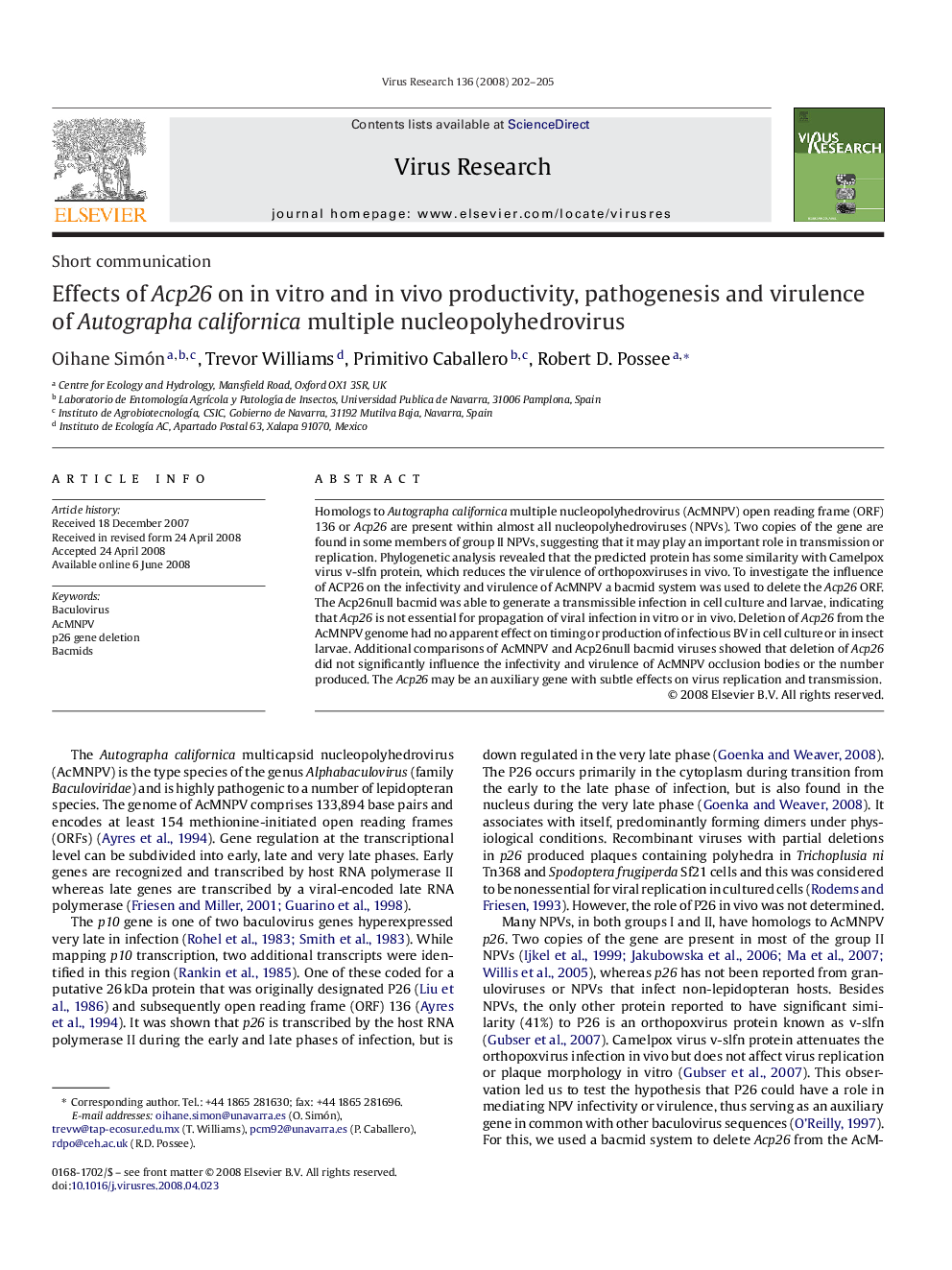| Article ID | Journal | Published Year | Pages | File Type |
|---|---|---|---|---|
| 3430482 | Virus Research | 2008 | 4 Pages |
Homologs to Autographa californica multiple nucleopolyhedrovirus (AcMNPV) open reading frame (ORF) 136 or Acp26 are present within almost all nucleopolyhedroviruses (NPVs). Two copies of the gene are found in some members of group II NPVs, suggesting that it may play an important role in transmission or replication. Phylogenetic analysis revealed that the predicted protein has some similarity with Camelpox virus v-slfn protein, which reduces the virulence of orthopoxviruses in vivo. To investigate the influence of ACP26 on the infectivity and virulence of AcMNPV a bacmid system was used to delete the Acp26 ORF. The Acp26null bacmid was able to generate a transmissible infection in cell culture and larvae, indicating that Acp26 is not essential for propagation of viral infection in vitro or in vivo. Deletion of Acp26 from the AcMNPV genome had no apparent effect on timing or production of infectious BV in cell culture or in insect larvae. Additional comparisons of AcMNPV and Acp26null bacmid viruses showed that deletion of Acp26 did not significantly influence the infectivity and virulence of AcMNPV occlusion bodies or the number produced. The Acp26 may be an auxiliary gene with subtle effects on virus replication and transmission.
